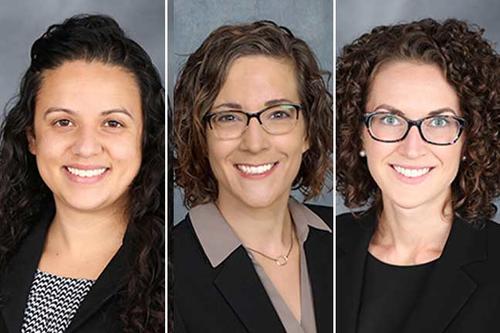
For U of M Medical School students Brianna Engelson, Jennifer Zick, and Sameena Ahmed-Buehler, their experiences support the oft-quoted statistic that one in three to four medical students screen positive for depression, but only about 15 percent seek treatment. Now, they are committed to making a change around the stigma of mental health for health care students and professionals.
Currently, the Minnesota Board of Medical Practice’s Physicians License Application asks, “Have you within the past five years been advised by your treating physician that you have a mental, physical or emotional condition, which, if untreated, would be likely to impair your ability to practice medicine with reasonable skill and safety?”
“There is a big issue in the wording of this question because they are really asking if you have ever been diagnosed, instead of asking if it's under control or if it’s being taken care of,” says Zick. “Many students cite the fear of negative repercussions on their careers as a primary reason for not seeking help.”
The student trio is now advocating on statewide platforms to remove these barriers in seeking care for mental health.
“The support for this issue is growing, and we’ll continue working toward a time when credentialing and licensing processes for all health care professions focus on current function and people can seek health care without fear,” said Ahmed-Buehler.
"We really want everyone to feel safe seeking help if they need it,” Engelson said. "It's important for physicians in practice to model this behavior for trainees, but disclosure requirements can get in the way."
Last March, in front of 150 physicians, Ahmed-Buehler presented the issue and why they are advocating for change, which inspired audience members to share personal stories about being a practicing physician and having a mental health disorder.
“It gave us goose bumps to listen to these powerful testimonies to further show the importance of this issue,” says Zick.
- Categories:
- Health




